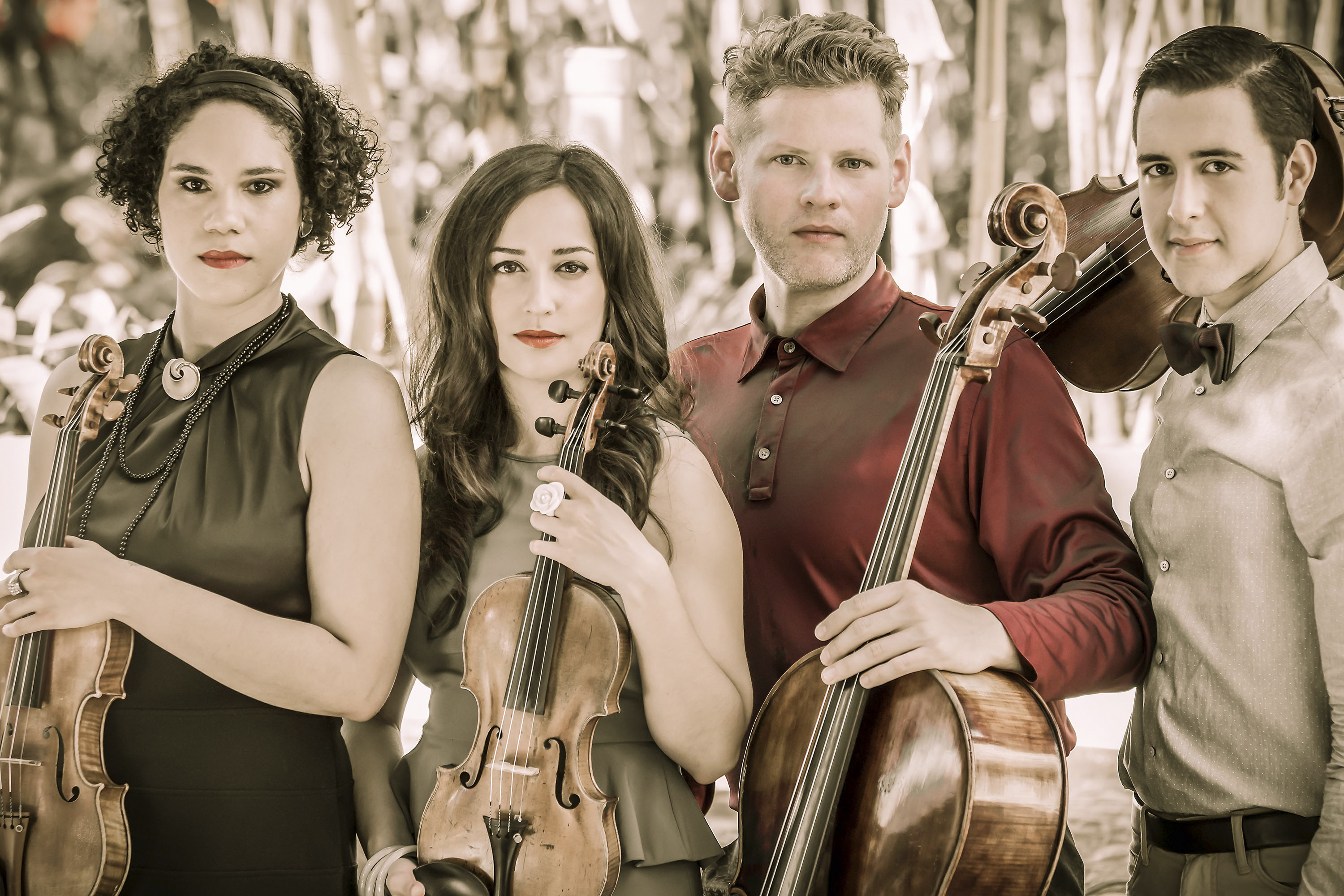Some composers have it so tough: Worrying over how to fulfill a request for a piece by Toscanini—who at the time, 1936, was merely the world’s most famous and powerful conductor—the 26-year-old Samuel Barber finally decided to arrange for full string orchestra the slow movement of his recent string quartet. The result was the Adagio for Strings, his greatest hit; tonight’s concert by the Catalyst Quartet offers a rare chance to hear it in its original quartet form. In later works of Barber (1910–1981), his slowly flowering warmth (even though it risks cloying) convinces much more than his attempts at aggressiveness or intensity. In this quartet, though, these two moods coexist pretty happily. A gentle, choir-ish passage in the first movement seems to have a little Sacred Harp flavor; this, and of course the ecclesiastical cut of the Adagio itself, makes the angst elsewhere in the piece sound like an authentic striving, for something spiritual, maybe—it makes it sound sincere. (I admit it’s probably unfair to mistrust Barber’s evocations of struggle just because he lived a life seemingly untouched by disadvantage of any kind.) The upward climb to the climax of the Adagio, in particular, is notably more moving as a metaphor when it’s four individuals doing the climbing rather than a mass. Barber’s quartet is part of the Catalyst’s all-American program, alongside music by Glass, Ives, Joan Tower, and others. Meany Hall, UW campus, 543-4880, uwworldseries.org. $35–$40 ($10 for students). 7:30 p.m. Thurs., March 19.
Some composers have it so tough: Worrying over how to fulfill a




